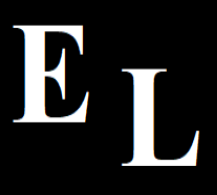Once the manuscript is received, it will be evaluated by a member of the Editorial Board to determine if it fits the scope and objectives of the journal, as well as to identify possible plagiarism practices. To do this, we use the PlagScan software.
The dictum will be sent to the authors within thirty days of submission (for thematic or special editions, the deadline is seven days). If the manuscript is inadequate or incomplete, the author will be notified of the changes to be made. The improved version will be sent to the email editor@estudioslibertarios.org within fourteen days.
After this preliminary evaluation, the Editorial Board will appoint two peers outside of Estudios Libertarios to review the works through a double-blind process, that is, they will not know the identity of the authors of the works, nor vice versa. If the opinions of the evaluators contradict each other, a third expert will be appointed to resolve the issue. Peers will be able to make three judgments regarding the work: REJECTED, APPROVED WITH CHANGES or APPROVED WITHOUT CHANGES. If the manuscript is approved with changes, the author will be informed of the corrections he must make to improve quality. If approved without changes, the author has the possibility of making minimal changes in form and/or content, if he/she deems appropriate. In both cases, the corrected article must be sent within a maximum period of fourteen days.
The review process is the responsibility of the journal. For regular editions there is no specific period, it can be from twenty-one days in the best of cases to six months. For thematic editions (which, as the name suggests, are those that deal with a specific topic), it can take up to two months.
Once this process has been completed, the Editorial Board will make the final decision on its publication and will proceed to make the galleys, which will be presented to the author, who may suggest minimal formal corrections within a maximum period of seven days. Finally, the layout and publication of the magazine is carried out. This process can take up to twenty-one days.
It is important to note that the journal retains the copyright of all published material, but allows authors to: freely disseminate the article, as well as preprints and postprints, on personal or institutional websites, as long as the acknowledgment of copyright, the explicit mention of “Estudios Libertarios” and the link to the publication are included.
Author search policy: the journal has a permanent call for authors and for thematic editions it opens calls for a limited time.
The journal disseminates these calls at academic events, through social networks (such as LinkedIn), research networks, academic websites and the publicity made by members of the Editorial Board and the Scientific Board in universities, think tanks and other professional environments. Under no circumstances are mass emails invited to publish articles sent. However, the Editorial Board may invite highly recognized libertarian scholars to submit articles on specific topics.
